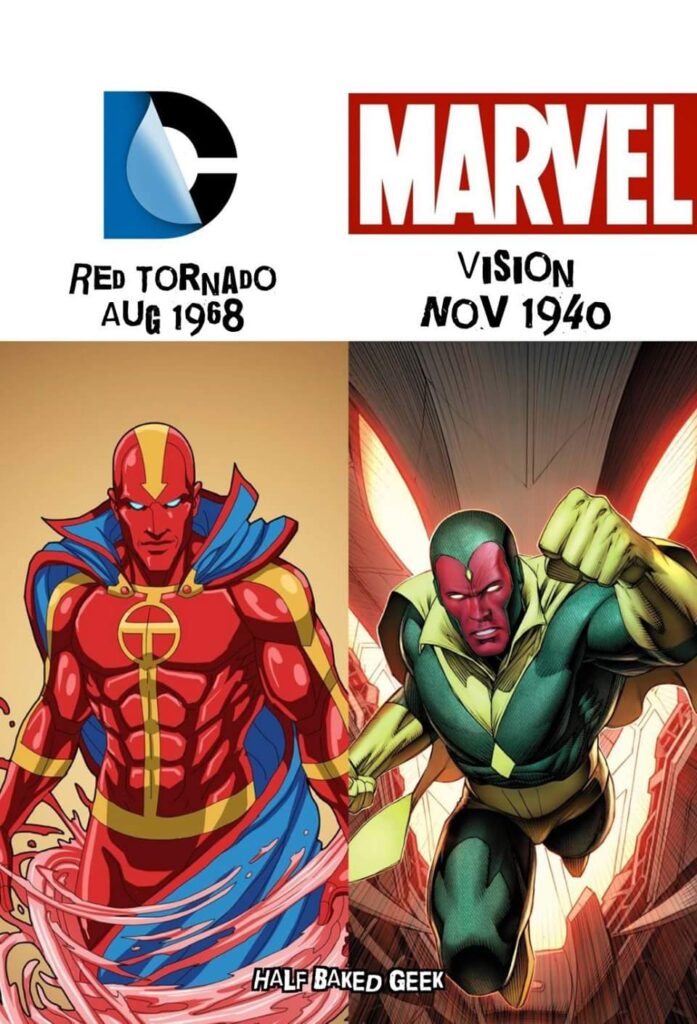“Because Africa deserves heroes who look like us and by now, so many of our creators are proving it.”
If you grew up with Superman, Batman, or Spider-Man, chances are you blossomed on those stories. But in Nigeria, comic sessions often came with a side of guilt.
“That’s not ours,” we’d hear. The question echoes online and offline: Are Nigerian comics just knock-offs of Marvel & DC? Let’s dive in with all sides of the story on the table.
The Copycat Critique: Is It Earned?
When Guardian Prime first appeared drawn by Comic Republic people noticed. He flew, could lift an Airbus, and had invulnerability.
Sound familiar? It’s easy to see parallels: a super-powered protector in spandex. Critics argue that early Nigerian comics borrowed heavily from Western archetypes super-strength, capes, exaggerated powers without cultural uniqueness.
Here’s the thing: creativity often starts as inspiration. But “inspiration” becomes “copy” when there’s no local context. If you replace Gotham with Lagos traffic but keep Western villain tropes, the roots feel shallow.
The Other Side: Cultural Remix, Not Rip-Off
Now meet the flipside. Comic creators more and more are building truly Nigerian superheroes lore rooted in Yoruba myths, proverbs, local names, and everyday struggles.
Take Guardian Prime again, yes, he has Superman-level powers, but his origin story is steeped in Nigerian faith and moral empathy.
His creator, Jide Martin, said: “I used to ask, ‘What would Superman do?’ why not make African superheroes for us?”
Or Panaramic’s Okiojo’s Chronicles, which teach Nigerian history through comics, blending education and entertainment with local legends.
Spoof Comics gives an “Area Boy” and father with real needs, SUPER POWER in their comic BOXSA
Then there’s ComicsDI. Co-founder Ayo Makinde talked about Duro: a mythic African epic and how Afrofuturism is reshaping the idea of what comics can be.

Digital Disruption and Local Voices
What helped these stories take off wasn’t big publishers, it was the internet and conventions. Comic Republic’s downloads grew from a few hundred in 2013 to 25,000 per issue recently.
Events like Lagos Comic Con (now hosting thousands of creatives and fans) and Ibadan Fan Expo are changing the game, making comics relevant, visible, and viable.
Fans Weigh In
In Reddit threads, Nigerian readers express the tension:
“With a good plot and art style… I’m tired of searching Nigerian comics and only seeing superhero stuff.” That longing for variety and authenticity is powerful.
Creators themselves acknowledge it. Roye Okupe used comics to prove Nigeria had a market for such stories before translating them into animation.
Where We’re Heading
It’s hard to be a pioneer. Early comparisons to Marvel or DC were inevitable. But today’s creators are daring to carve new paths:
Festivals and conventions are spotlighting local content. Webcomics and apps are democratizing distribution.
Hybrid storytelling combining folklore, Afrofuturism, and futuristic sci-fi is becoming the norm.
Global players like Disney (Iwájú) and Cartoon Network (YouNeek’s Iyanu) are taking notice.
Yes, imitation might be the sincerest form of flattery but innovation is our own answer.
Your Turn: What Do You Think?
Are Nigerian comics still standing in the shadow of Marvel & DC or are they shining with their own light? Share your thoughts:
Which Nigerian comic feels most original to you?
Who’s doing the best job at capturing Nigerian identity?
What fresh genre or voice do you want to see next? Let’s talk our comic universe is just getting started.